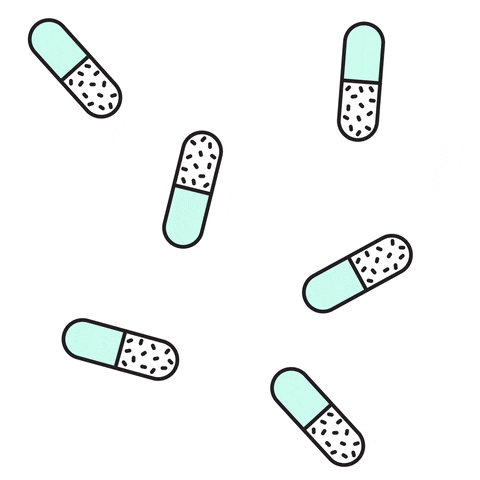The REIMAGINE Study, Effects of Misinformation about HRT and the Undertreatment of Menopause, "Barbie Botox", STOPDAPT-3 Trial, Is Depression a Direct Risk Factor for Diabetes?, COVID Consideration Corner.
The Full Panel meets your TLDR (Too Long; Didn’t Read) needs by delivering the latest medicine & health news in a nutshell. 🥜
REIMAGINE study suggests MRI scans combined with PSA density tests may offer a more reliable method for detecting serious prostate cancer

Gist: The REIMAGINE study, published in BMJ Oncology, suggests MRI scans combined with PSA density tests (i.e., blood test) may offer a more reliable method for detecting serious prostate cancer, potentially reducing mortality and overtreatment. The study indicates that the current PSA screening benchmarks may miss serious cases.
Nitty-Gritty: The study focused on men aged 50 to 75 and invited 303 participants to undergo MRI and PSA tests. 48 men (16%) showed potential cancer signs on MRI, even though they had a median PSA density of 1.2 ng/ml, which is below the current referral benchmark of 3 ng/ml. Subsequent NHS assessments found 29 men (9.6%) required cancer treatment, 15 of whom had serious cancer but a PSA below 3 ng/ml. Three men (1%) had low-risk cancer not requiring treatment. Prof. Caroline Moore, the study's chief investigator, emphasized that the results could herald a shift towards a more reliable prostate cancer screening method with less overdiagnosis. The study also found lower participation rates among black men, which researchers say needs to be addressed given their higher prostate cancer risk.
Big Picture: This study questions the current prostate cancer screening guidelines, which rely heavily on PSA levels, potentially overlooking significant cancer cases. A more comprehensive approach using MRI scans could be transformative, lowering mortality rates and reducing overtreatment. Researchers are moving toward a national prostate cancer screening programme with a larger study called LIMIT.
There are various Canadian resources regarding prostate cancer screening, such as this one from the Canadian Urological Association.
Original source: here.
Is menopause treatment underprescribed?

Gist: An alarming gap exists in menopause care in the U.S., attributed to lingering myths about hormone replacement therapy (HRT) and inadequate training of medical professionals. As a result, many women experience unresolved physical and emotional symptoms, leading some doctors to shift to virtual startups focusing on women’s health.
Nitty-Gritty: Many of the symptoms of menopause, such as vaginal dryness and urinary tract infections, can be effectively treated with low-dose estrogen creams, yet this treatment is underutilized. Misinformation from early 2000s studies suggested that HRT increased risks for heart attacks, strokes, and breast cancer, scaring many away from hormone treatments. However, further research has debunked these myths, showing that HRT can actually have positive effects on cardiovascular and bone health. Despite this, FDA guidelines still require black-box warnings on estrogen products based on the outdated data. Medical training programs also fall short; many OB/GYN residents graduate with limited knowledge in menopause treatments. This is exacerbated by systemic issues in healthcare, where training often focuses on patient demographics that are either pregnant or over 65, leaving menopausal women underserved.
Big Picture: The menopause care gap in the U.S. is a multi-faceted issue, rooted in misinformation, regulatory lag, and gaps in medical training. This is not only a public health concern but also an issue of healthcare equity. The shift of doctors to specialized digital health clinics for women’s issues signifies an attempt to address this gap, but more systemic solutions are needed. Properly trained medical professionals and updated guidelines can help alleviate the suffering of millions of women who go through menopause each year, many of whom experience symptoms severe enough to interfere with their daily lives.
Original source: here.
"Barbie Botox" 💉

Gist: Isabelle Lux, a 32-year-old content creator, underwent a procedure known as ‘Barbie Botox’ to slim her shoulders and alleviate back pain. The trend is gaining social media attention, but experts warn of potential risks.
Nitty-Gritty: Originally developed to relieve overworked trapezius muscles that could cause migraines, ‘Barbie Botox’ now serves a cosmetic purpose—slimming the shoulders and elongating the neck. The procedure involves injecting 40 units of neurotoxin into each trapezius muscle, leading to muscle shrinkage over time. Lux’s video about her experience has garnered over 250,000 views, and the hashtag ‘Barbie Botox’ has over 7 million views on TikTok. Lux experienced initial pain and stiffness but felt "better than ever" two months later. Dr. Parisha Acharya warns that improper administration could result in muscle paralysis and even affect the ability to hold up the head.
Big Picture: The rising popularity of ‘Barbie Botox’ reflects a broader surge in minimally invasive cosmetic procedures, a market expected to reach $36.8 billion by 2032. The trend also taps into ongoing debates around beauty standards, gender, and medical ethics. Critics argue that the trend, especially when popularized on social media, could encourage risky behavior, especially among a younger audience.
Original source: here.
STOPDAPT-3 Trial: don't skip aspirin immediately after percutaneous coronary intervention 💊

Gist: The STOPDAPT-3 trial revealed that using only the P2Y12 inhibitor prasugrel in patients after percutaneous coronary intervention didn't reduce major bleeding rates compared to dual antiplatelet therapy (DAPT) with prasugrel and aspirin. The trial also indicated that going without aspirin may increase the risk of some coronary events like stent thrombosis.
Nitty-Gritty: Conducted at 72 centers in Japan, the study involved 5,966 patients who had Acute Coronary Syndrome (ACS), high bleeding risk, or both. Participants were randomized to receive either prasugrel monotherapy or DAPT with prasugrel and aspirin for one month post-PCI. Major bleeding rates between the two groups did not differ significantly, but the prasugrel-only group had higher instances of stent thrombosis and unplanned revascularization. Medical experts, including Manesh Patel, MD, caution that the results, especially the dosage, may not easily generalize to populations outside Japan.
Big Picture: The trial challenges the idea that forgoing aspirin could reduce bleeding without increasing coronary risk, advising that DAPT should remain standard treatment within a month post-PCI. Given that the global incidence of major bleeding within the first month after PCI remains high, especially among acute coronary syndrome (ACS) or high-bleeding-risk patients, this study adds an important layer of caution. While experts see the results as pivotal for future studies, many questions remain, such as the optimal type and dose of medication and whether similar results would be found in different demographic groups.
Original source: here.
Is depression a direct risk factor for diabetes?

Gist: A study published in the journal "Diabetes Care" has established, for the first time, that depression has a "significant causal effect" in increasing the risk of developing type 2 diabetes. Conducted by the University of Surrey and funded by Diabetes UK, the study suggests that depression should now be considered a risk factor for type 2 diabetes.
Nitty-Gritty: The research analyzed the genetic and health information of 19,344 people with type 2 diabetes and over 5,000 people diagnosed with depression, along with 153,079 self-reported cases of depression. The study employed two-sample bi-directional Mendelian randomisation to evaluate the causal relationships. The researchers found that depression increases the risk of developing type 2 diabetes. Notably, 36.5% of the effect was mediated by BMI (Body Mass Index). The study identified seven genetic variants common to both conditions, linked to insulin secretion or inflammation. There was no evidence of causality in the reverse direction, i.e., diabetes causing depression.
Big Picture: This groundbreaking study not only alters our understanding of the relationship between depression and type 2 diabetes but also has significant implications for public health policy and clinical practices. It emphasizes the need for risk assessment and preventive measures for people with depression to stave off the development of type 2 diabetes. The researchers also recommended that anti-depressant treatment for people with depression who are at risk for type 2 diabetes should favor medications providing better glycemic control, like selective serotonin reuptake inhibitors (SSRIs). This new understanding could pave the way for more integrated care that addresses both the mental and physical impacts of these conditions.
Original source: here.
COVID Consideration Corner: What to know for this fall 😷

Gist: As fall arrives, a rise in COVID-19 cases in Quebec has health experts concerned. They are urging the public to know how to access testing, especially given waning immunity from vaccines administered over six months ago.
Nitty-Gritty: Dr. Donald Vinh of the McGill University Health Centre reports increased symptomatic patients, indicating a worrying trend. Data from Quebec's Institute of Public Health also confirms a rise in the SARS-CoV-2 virus in Montreal's wastewater. Last week, nearly 2,000 new cases were recorded, with 192 people being treated in Montreal hospitals, including five in intensive care. An updated vaccine booster will be available in October. Rapid tests are free at vaccination and screening centers. Some pharmacies also offer free tests for vulnerable populations, while the general public can buy tests at $6 to $10 per test. According to Dr. Vinh, testing is crucial for tracking the virus and hopes the Health Ministry will broaden the distribution of rapid tests. There are about 65 million rapid tests in Quebec's warehouses, some of which will be shared internationally due to low domestic demand.
Big Picture: The uptick in cases in Quebec, coupled with waning immunity and changing social behaviors with the onset of colder weather and school resumptions, poses a potential public health crisis. Experts are emphasizing the importance of widespread testing to track and manage the virus. Despite low current demand for tests, experts advocate for a proactive approach, involving mask-wearing in crowded areas and frequent testing, to mitigate the spread of COVID-19 as the fall season sets in.
Original source: here.
Interested in previous newsletters or other articles we’ve published? Check them out here at: thefullpanel.com
Got a question for us? Suggestions for content you’d like to see? Feedback? E-mail us at: hello@mail.thefullpanel.com
